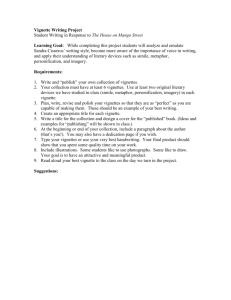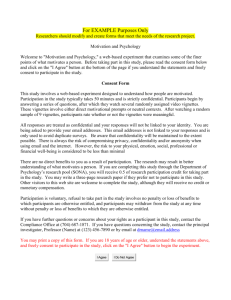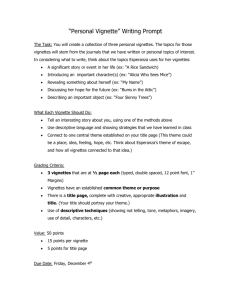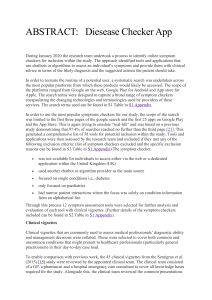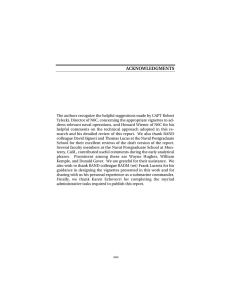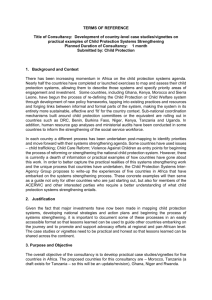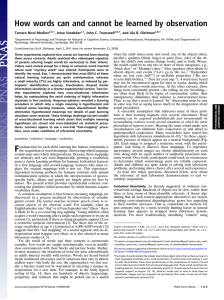International Perspectives in Values-Based Practice ... and commentaries – call for contributions to a new book
advertisement
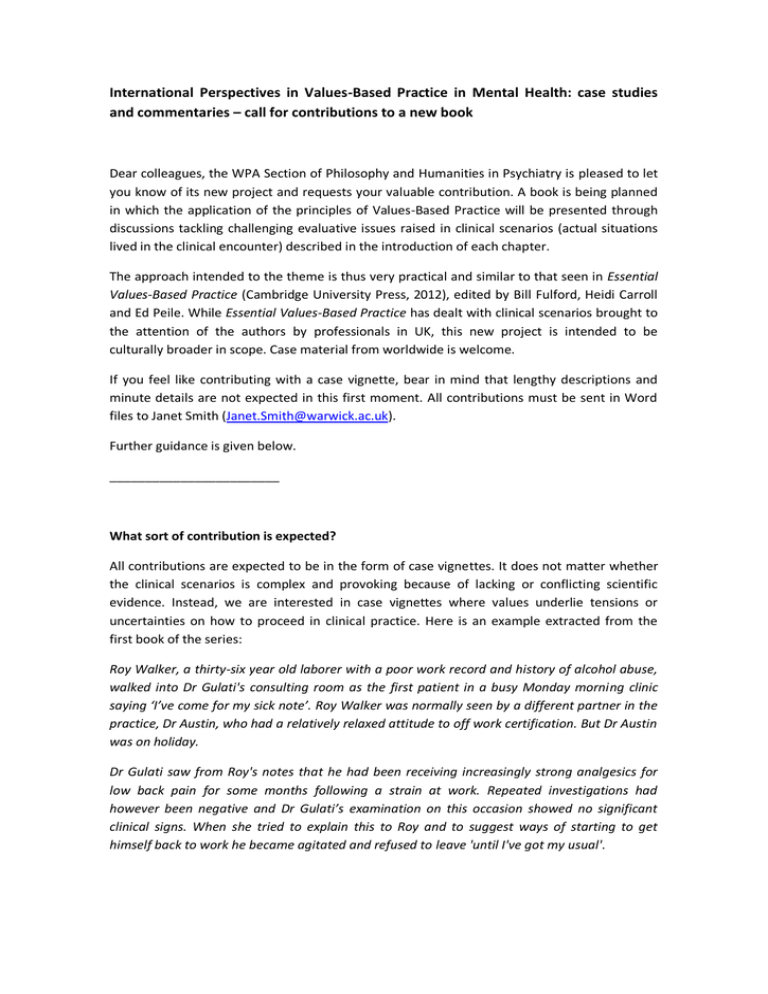
International Perspectives in Values-Based Practice in Mental Health: case studies and commentaries – call for contributions to a new book Dear colleagues, the WPA Section of Philosophy and Humanities in Psychiatry is pleased to let you know of its new project and requests your valuable contribution. A book is being planned in which the application of the principles of Values-Based Practice will be presented through discussions tackling challenging evaluative issues raised in clinical scenarios (actual situations lived in the clinical encounter) described in the introduction of each chapter. The approach intended to the theme is thus very practical and similar to that seen in Essential Values-Based Practice (Cambridge University Press, 2012), edited by Bill Fulford, Heidi Carroll and Ed Peile. While Essential Values-Based Practice has dealt with clinical scenarios brought to the attention of the authors by professionals in UK, this new project is intended to be culturally broader in scope. Case material from worldwide is welcome. If you feel like contributing with a case vignette, bear in mind that lengthy descriptions and minute details are not expected in this first moment. All contributions must be sent in Word files to Janet Smith (Janet.Smith@warwick.ac.uk). Further guidance is given below. ________________________ What sort of contribution is expected? All contributions are expected to be in the form of case vignettes. It does not matter whether the clinical scenarios is complex and provoking because of lacking or conflicting scientific evidence. Instead, we are interested in case vignettes where values underlie tensions or uncertainties on how to proceed in clinical practice. Here is an example extracted from the first book of the series: Roy Walker, a thirty-six year old laborer with a poor work record and history of alcohol abuse, walked into Dr Gulati's consulting room as the first patient in a busy Monday morning clinic saying ‘I’ve come for my sick note’. Roy Walker was normally seen by a different partner in the practice, Dr Austin, who had a relatively relaxed attitude to off work certification. But Dr Austin was on holiday. Dr Gulati saw from Roy's notes that he had been receiving increasingly strong analgesics for low back pain for some months following a strain at work. Repeated investigations had however been negative and Dr Gulati’s examination on this occasion showed no significant clinical signs. When she tried to explain this to Roy and to suggest ways of starting to get himself back to work he became agitated and refused to leave 'until I've got my usual'. What sort of discussion is expected to be ignited by the cases reported? They are manifold. Any discussion emerging from dilemmas engendered by the role of values in the clinical encounter is of interest to the book. The clinical scenario above, for example, generated a discussion on the diversity of values simultaneously at stake, including: ethical values like honesty and fairness; the patient’s autonomy and best interest (in the short and long run); the physician commitment to the effort of her partners to establish high standards of clinical governance; community’s best interest, etc. How lengthy and detailed is the case vignette expected to be? It is not necessary to worry about that initially. They may be very short and simple, if you think it suffices to let us capture the tension or dilemma engendered by values. Longer and richer descriptions are also welcome if you think a shorter description will prevent us to notice how complex and instructive the case can be. Eventually, if your material is selected to be included in the book, the authors may get in contact with you in order to obtain additional information. Is it necessary that the case vignettes match perfectly an actual case I have dealt with? It is expected the case vignettes derive from your practice, but is not imperative that they match a specific case. It may be an adapted description of a situation you have seen in many different cases. Will the case vignettes be included in the book unchanged from the original material? Not necessarily. They may eventually be adapted to stress some aspect that makes them even more instructive. Will all contributions be included in the book? Case vignettes will be selected depending on how much their value load foster discussions instructive as regards the application of the principles of Values-Bases Practice. Good case vignettes may eventually be left out if we receive many contributions. Will the contributors be credited for the cases included in the book? Yes, all contributions will receive due credit. How it will be done will depend on the extent of the contribution.
